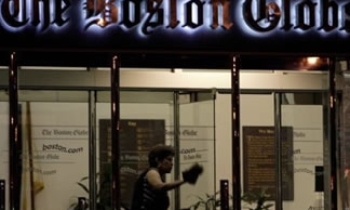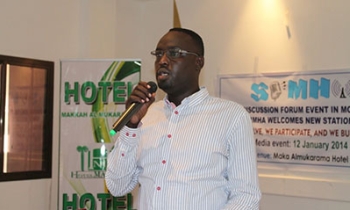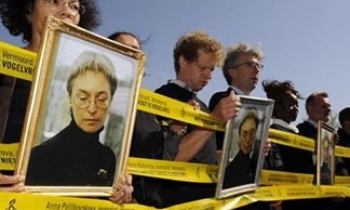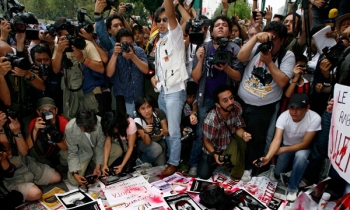Most of the hundreds of readers who wrote and called after my column on Bob Woodward ran last week said I was way too soft on him and on The Post. I think their concerns and questions deserve to be answered.
One of those readers, Bob Woodward, thinks that some of his critics have "pigeonholed" him unfairly. "For 34 years of reporting for The Post and 13 best-selling books, I have tried to focus on the reader and provide detailed, reliable, fair-minded inside accounts of the American presidency," he said. "My books are regularly quoted in newspapers and magazines, on television during the presidential debates, and by Democrats, Republicans, Bush supporters and Bush critics."
Many readers started their e-mails by writing about what a hero Woodward has been to them since his reporting on the Watergate scandal and how much they appreciated his work. But they said they were disturbed by his reporting methods.
"Woodward has commented that his 'Job Number One' is to protect his sources," wrote Craig Fischer of Takoma Park. "All these years that I've been subscribing to the Post, I assumed that your Job Number One was to keep your readers informed about things. Woodward also said, 'I'm in the habit of keeping secrets.' Does that seem like the oddest thing for a newspaper reporter to say? Why bother gathering information if you're just going to keep it secret?"
Most of Woodward's reporting is done with confidential sources, whom he protects even under intense criticism, because he believes that is the only way he can dig out inside information. When he feels he has the complete story from interviews and documents, he usually writes without identifying his sources, though he quotes directly from on-the-record interviews. The senior administration official who told him about CIA operative Valerie Plame and her position at the agency is a confidential source in a book Woodward is writing on President Bush's second term, "a book I will be delighted to be judged on," he said.
Another reader wrote: "You and your colleagues are not yet grasping the full extent of the damage done. The sad fact is that Bob Woodward, and by extension The Washington Post, has an enormous vested interest in maintaining cozy relationships with the White House. Has that vested interest now compromised his integrity? More foxes guarding the henhouse does nothing for us hens."
Sources and reporters have to trust each other for there to be truthful journalism. Woodward does not have a reputation as being partisan. The access he has built over more than 30 years has gotten him both behind the closed doors of power -- and pilloried by some who believe he was sympathetic to Bush in "Plan of Attack," his book about how the Bush administration decided to go to war, although Democrats have also used the book for their attacks.
Woodward says some people ask, " 'Why don't you get Bush the way you got Nixon?' I'm not reporting to bring down a president or to build up a president. I ask the tough questions. I want to establish the facts in the most direct way I can." He says he believes that the question should be: "Do the readers get information that they didn't have before? I believe that I have added to what was known, and this is valuable."
Another frequent question is: Just what does Woodward do for The Post? Does he have a contract? And is he paid big bucks? Woodward, like most Post employees, does not have a contract. While his pay is confidential, I'm told by Executive Editor Len Downie that it is in the range of other senior reporters. Woodward holds the title of assistant managing editor, which he has retained since he was AME of the Metro section and of investigative projects. Reporters often call him to tap his expertise and to ask him to contact his sources for leads or other information. He has written 49 news stories since the Sept. 11, 2001, attacks and his byline was on six of the 10 stories that won a Pulitzer Prize for reporting on terrorism.
Leo Rennert of Bethesda, a journalist and former bureau chief, asks a common question: "Woodward already has apologized to his editor. When will he and the Post have the grace to apologize, as they should, to their readers?" Woodward says he considered his apology to be to the newspaper and its readers.
Michael Doheny of Arlington writes, "What journalistic principle is Woodward upholding by not revealing the source of the leak . . . since he has revealed the identity to [Special Counsel Patrick] Fitzgerald?" The source requested that Woodward talk to Fitzgerald, but specifically forbade Woodward to release the name publicly.
Some of you asked why he was afraid of being subpoenaed, since he found out about Plame months before the leak investigation began. He said he was not concerned until after her name was published and the investigation began.
In a statement about his deposition, Woodward said that he submitted an 18-page list of questions to Vice President Cheney before he interviewed him for "Plan of Attack." Many readers were surprised that Woodward would tell a source what he intended to ask and said they thought he was going easy on a source. It is not uncommon in journalism, especially in highly complex stories, to let sources know what questions or issues will be asked. That doesn't mean that a reporter won't ask questions not on the list.
When the Plame case ends, I for one will be looking forward to knowing the whole story. I hope The Post and Woodward will pull no punches in telling us what went on in the rarefied levels of government and journalism.
Deborah Howell can be reached by phone at 202-334-7582 or by e-mail atombudsman@washpost.com.









